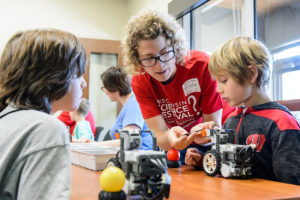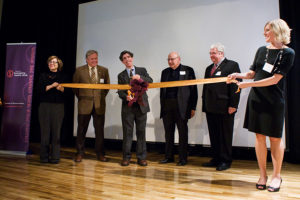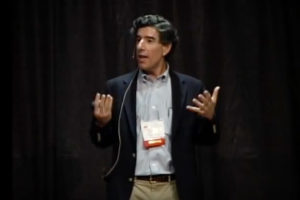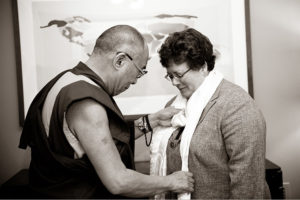When UW–Madison neuroscientist Richard Davidson arrived on campus in 1984, he set up a modest lab in the Brogden Psychology Building with a handful of employees devoted to discovering how emotions and the mind worked.
Since then, Davidson and his team have not only expanded our understanding of the mind, but they’ve also expanded in size to more than 40 full-time employees and hundreds of students and collaborators under the auspices of the Center for Healthy Minds (CHM).
Such growth has led the budding organization to become its own administrative unit under the College of Letters & Science and to relocate this week from the Waisman Center to the newly renovated Kennedy Dairy Building at 625 W. Washington Ave.
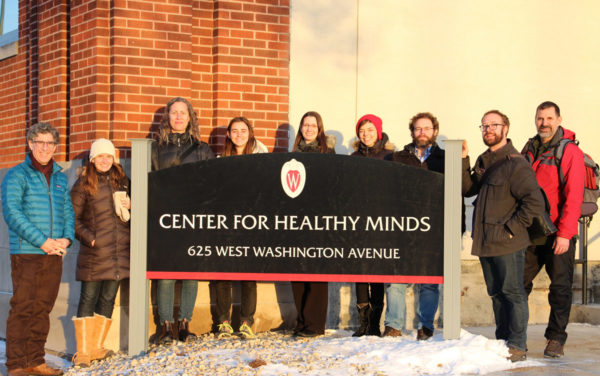
“This will be the first time the majority of us can be under one roof to do research and bring the Center’s mission forward,” Davidson says. “L&S is the heart of the university. It teaches the most courses and most students. It brings together faculty from a more diverse range of disciplines than any other unit on campus. It’s an excellent home for us to broaden our interdisciplinary focus, and we are deeply grateful for the support we have received from Chancellor Blank and Dean Scholz throughout this process.”
With the move, the mission of the Center will remain the same – to promote well-being and relieve suffering through a scientific understanding of the mind. Yet the group will bring in new interdisciplinary approaches to study well-being from multiple vantage points, whether it’s in an educational, neuroscientific, developmental, religious or economic context.
"“Revolutionary, life-changing research is happening across our college, and Professor Davidson’s foundational work on the brain, in collaboration with humanists, social scientists and scientists, has long been among the finest examples."
“L&S enthusiastically welcomes the Center for Healthy Minds into our family of centers and institutes,” says Karl Scholz, dean of L&S. “Revolutionary, life-changing research is happening across our college, and Professor Davidson’s foundational work on the brain, in collaboration with humanists, social scientists and scientists, has long been among the finest examples. I look forward to great advances in cognitive research as groundbreaking explorations continue in L&S.”
Though the Center for Healthy Minds will no longer call the Waisman Center its administrative home, it will keep close ties through collaborations and Davidson’s ongoing involvement in the Brain Imaging Core, a unit that studies the brain and development through imaging techniques such as MRI and PET. Imaging equipment will not be replicated in the new space on West Washington Avenue because of long-term scientific partnerships with the Waisman Center and its established resources.
“We’re deeply appreciative of the support the Waisman Center has given us over the years and are looking forward to continued collaborations and partnerships in the future,” Davidson says.
The new 28,000-square foot space on West Washington Avenue serves as the first step in the Center’s larger plans for establishing a one-of-a-kind place for the study of the underlying constituents of well-being and how it might be cultivated in children and adults in a broad range of settings. The facility includes a large meditation space for research and staff use, a psychophysiology room for data collection, conference rooms, a large multi-purpose gathering room for all-Center functions, and office space for Center students and staff as well as rented space for employees of its newly founded nonprofit Healthy Minds Innovations, Inc.
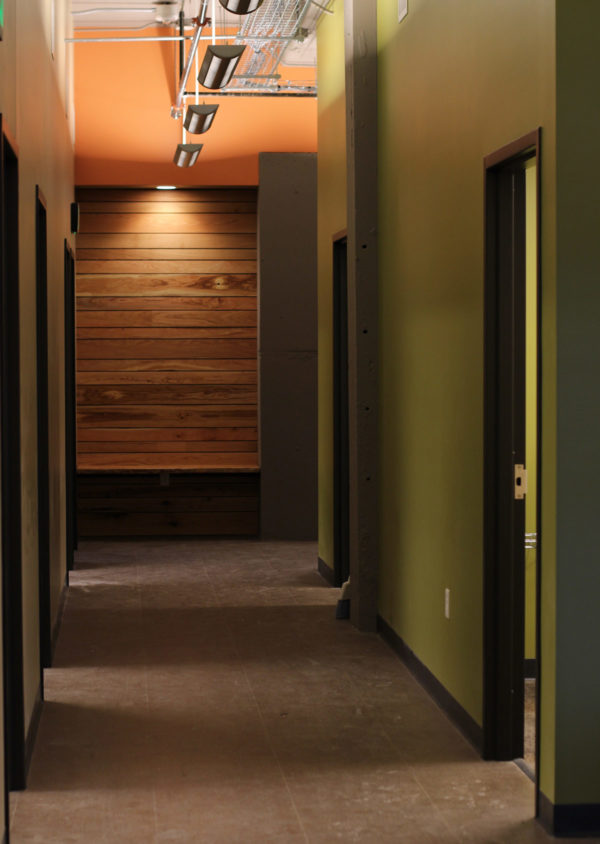
Since opening eight years ago in its current home at the Waisman Center, the Center for Healthy Minds has not only grown its faculty and staff through campus support and UW–Madison’s strong scientific reputation, but also through the generosity and backing of supporters, including longtime university partners John and Tashia Morgridge, who created the “Morgridge Match” to double gifts for faculty endowments.
Thanks to the generosity of donors who met the Morgridge Match challenge, the Center raised funds for nine new faculty members in both basic and translational fields focused on contemplative studies, well-being, development and neuroscience. Three faculty have already been hired and recruitment for the remainder of the positions will continue over the next three to five years.
In addition to Davidson, four faculty members will spend some of their time at the Center at West Washington:
- Larissa Duncan, Elizabeth C. Davies Chair in Child & Family Well-Being at the Center for Healthy Minds and the School of Human Ecology, focuses on the biological and psychological pathways through which secular contemplative practices may support child and family well-being and improve health equity.
- John Dunne, Distinguished Chair in Contemplative Humanities at the Center for Healthy Minds and the Department of Asian Languages and Cultures, studies Buddhist philosophy and contemplative practice, especially in dialogue with cognitive science.
- Charles Raison, Mary Sue and Mike Shannon Chair for Healthy Minds, Children & Families and Professor at the School of Human Ecology and School of Medicine and Public Health, examines novel mechanisms involved in the development and treatment of major depression and other stress-related emotional and physical conditions.
- Julie Poehlmann-Tynan, Dorothy A. O’Brien Professor in Human Ecology at the Center for Healthy Minds and the School of Human Ecology, explores the role of family relationships in the development of resilience in high-risk infants, toddlers and preschoolers.
–Marianne Spoon
